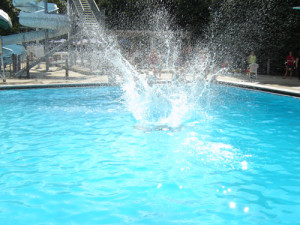Way back in 1989, a latex products manufacturer named Ansell Healthcare Products registered a federal trademark for the phrase “Condom Sense,” which it used in advertising its Lifestyle condoms. A few years later, Ansell sought federal registration of Condom Sense as a service mark for a proposed chain of retail stores. But Ansell’s own retail stores never materialized, and it ended up licensing the mark to Condom Sense, Inc. (“CSI”), which had already opened up its own Condom Sense store in Dallas.
In 1997, CSI sold its original store on Greenville Avenue, including the right to use the Condom Sense name. That sale led to a series of competing claims over use of the name at multiple locations, including some inconclusive preliminary litigation. In 2005, Ansell — which had never used the mark itself, and which had been unaware of all the drama over its use in Texas — assigned CSI all of its interest in the federal service mark. CSI then registered the mark in Texas, along with three related service marks that also used the Condom Sense name. CSI ended up suing the operators of the other Condom Sense stores, alleging trademark infringement under the federal Lanham Act, the Texas Trademark Act, and Texas common law. After a bench trial, the trial court ruled in favor of the competitors and cancelled registrations of both the federal and state service marks. CSI and its owners appealed.
According to the court of appeals, CSI’s competitors were not entitled to cancellation of the state service mark even though the trial court found that CSI registered the mark fraudulently, i.e., while knowing that competitors were also using the Condom Sense mark. Under section 16.28 of the Business & Commerce Code, the party asking the court to cancel the registration must be someone who was “injured” by the false or fraudulent procurement of the service mark registration, but the other Condom Sense owners had failed to submit any evidence that they were injured by it. But the court of appeals sustained the trial court’s cancellation of the federal service mark, giving credit to testimony that Ansell’s licensing agreement with CSI had not been renewed past its original expiration date in 1999, and that the mark had therefore lapsed because Ansell had abandoned it. Finally, the court of appeals affirmed the trial court’s ruling in favor of the competitors’ laches and unclean hands defenses, holding that the evidence supported the lower court’s rulings that five years had been too long for CSI to sit on its rights before bringing suit, and that it had acted improperly in selling any rights to the Condom Sense name (in the 1997 sale of the original store) at a time when it was merely a licensee of Ansell’s mark.
Condom Sense, Inc. v. Alshalabi, No. 05-10-01024-CV
 McGuire-Sobrino v. TX Cannalliance LLC presents a mini-course on effective protection of business information. Cannalliance sued McGuire-Sobrino, a former contractor, for restricting its access to its website and other digital assets. The Fifth Court addressed
McGuire-Sobrino v. TX Cannalliance LLC presents a mini-course on effective protection of business information. Cannalliance sued McGuire-Sobrino, a former contractor, for restricting its access to its website and other digital assets. The Fifth Court addressed

